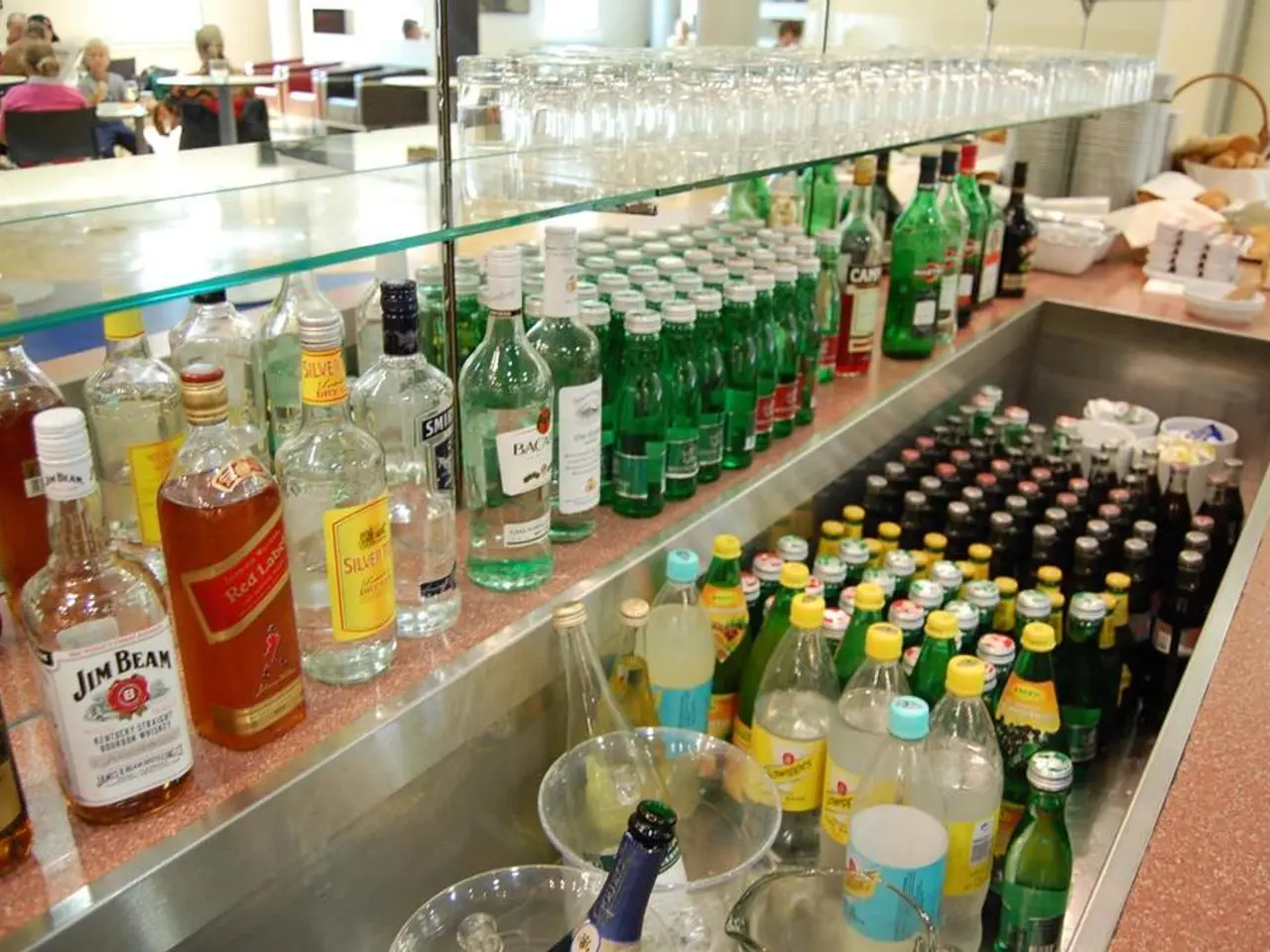Customer sets new record with over 1000 bottles of liquid purchased at Lidl
In an extraordinary display of recycling commitment, a customer at a Lidl store in Fehmarn, Germany, returned over 1,000 bottles and cans, setting a new record. This large-scale deposit return has sparked conversation online and highlighted the effectiveness of Germany's deposit system.
The deposit system in Germany, known as "Pfand," requires retailers to accept the return of empty beverage containers as long as they sell the corresponding deposit items. Lidl, along with other large discounters like Aldi and Kaufland, does not mention any quantity restrictions, but some branches may set their own limits to avoid congestion at the return machines and long lines.
The large collection of containers caused a stir, raising questions about space requirements, storage, and hygiene. Returning a large quantity of containers can slow down the process, as the unusual result was seen as a small provocation. It is recommended to contact the branch in advance or be flexible in time with very large deposit amounts to ensure a smooth return process.
The customer's deposit receipt amounted to 282.25 euros, a testament to the financial benefits of regularly collecting and returning empty containers. The quantity of returned bottles and cans (1,100) is significantly larger than usual, underscoring the system's efficiency.
Single-use milk drinks have been subject to a deposit in Germany since 2022, and by 2025, PET bottles will contain at least 25% recycled material. Recycled material consists of plastics that have been created in the recycling process. This move towards increased recycling is a significant step towards sustainability.
The deposit system in Germany is practical and environmentally friendly, encouraging very high return rates (97-99%) for non-reusable beverage containers. The system is highly automated, with reverse vending machines available in Lidl stores that scan the containers and issue a receipt for the deposit amount.
It's essential to remember that only containers that carry a "Pfand" deposit (usually marked on the bottle or can) are eligible for return and refund. Containers that do not belong to the deposit system might be subject to Lidl’s own levy system, and therefore may not be returnable for deposit at Lidl.
In conclusion, the record-breaking deposit return at Lidl Germany serves as a powerful reminder of the importance of recycling and the effectiveness of Germany's deposit system. By returning empty containers, customers can contribute to both their wallets and sustainability efforts.







